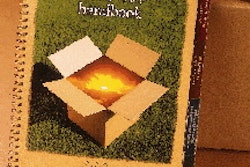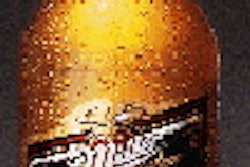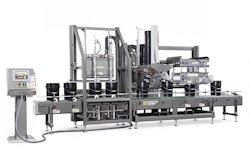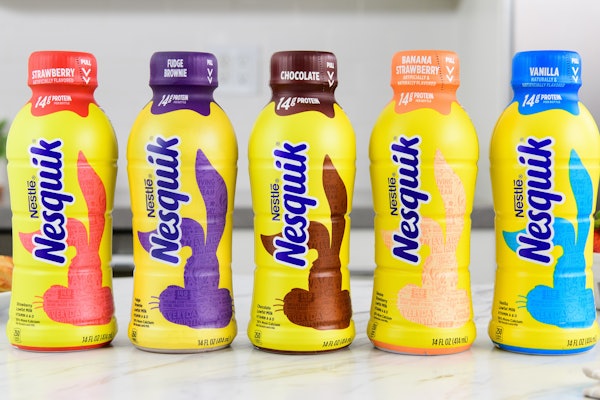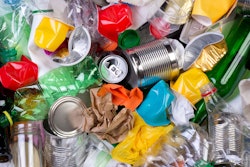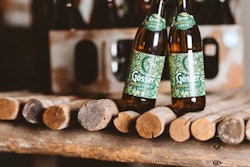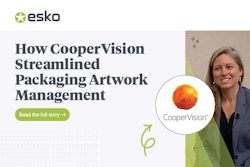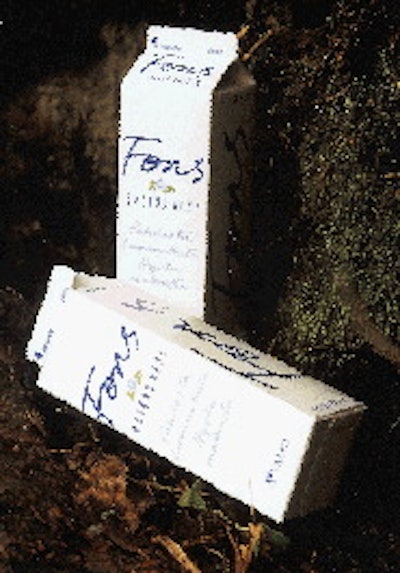
Prompted by environmentally concerned consumers, Valio Ltd. of Helsinki, Finland, continues to replace aluminum foil as a barrier layer in its paperboard beverage cartons. Valio's own environmental program started about five years ago.
Valio made its most recent switch from aluminum foil to a plastic coating in January, for gabletop cartons of its 1-L "Fons"-brand drinking water. Until this year, the cartons comprised a layer of aluminum foil in the structure to provide barriers to unpleasant odor and taste as well as moisture loss.
While foil provided ample barrier properties, it didn't meet the environmental objectives of the company or consumers. Leo Junkkarinen, Valio's manager of packing technology, points out that the aluminum foil is a safe material. However, he says, "many consumers wonder if aluminum is harmful to their health and if it may [lead to] allergic reactions, so it is better to avoid the material."
He also says that manufacturing the material requires "huge amounts of energy," which also weighs against using foil. When it comes to recycling, though, the paperboard carton is still a multilayer structure that requires separation. So determining if Valio's switch from foil to a plastic coating actually provides an environmental advantage, or is more of a perceived benefit, seems open to debate.
"For recycling, the milk, juice and water cartons are collected here in Finland," Junkkarinen says. "[Paperboard] fibers and aluminum [foil] or high-barrier plastics are separated in the process. The less aluminum, the easier it is to use [downstream] for heating or incineration plants."
Setting the structure
Replacing the foil in the Fons carton structure is a coextrusion coating called Ensobarr. The coating is produced by Stora Enso, a company formed last December through the merger of Finland's Enso and Sweden's Stora. The forest products company is represented in the U.S. by Enso Interamericas, Inc. (Miami, FL).
The overall carton structure includes an outer layer of 20 g/sq m polyethylene/285 g/sq m paperboard/41 g/sq m Ensobarr coating. The coating includes ethylene vinyl alcohol. Stora Enso applies the coextrusion coating at its Karhula, Finland, mill. Rollstock is then shipped to the Lahti, Finland, plant of Elopak (New Hudson, MI) where the material is flexo-printed in three colors and converted into Pure-Pak® cartons.
Elopak's Finnish converting plant sends knocked-down, five-panel cartons to Valio, where they're erected, filled and sealed on a U-S80A Aseptic Pure-Pak system from Elopak. The three-lane system fills the 1-L cartons at a combined rate of 100 cartons/min. While Valio does use the system to aseptically fill other dairy beverages, the cartons for Fons water are not treated with hydrogen peroxide. "The blanks are microbiologically clean enough that we don't treat them," Junkkarinen says. "We do pasteurize the water, though we are conducting tests to determine if we can [safely] sell water without pasteurization."
Valio purchased the aseptic Elopak machine in 1992. Its ability to run a variety of products, aseptic or not, led Valio to buy a second machine earlier this year for other dairy beverages. The first aseptic dairy application of the U-S80A was for 1/4-L gabletop cartons of coffee creamer in Norway (see Packaging World, April '96, p. 23, or packworld.com/go/hedmark).
Privately held Valio is made up of 44 co-op dairies and includes more than 20ꯠ farmers. The company describes itself as the leading milk processor in Finland. Most of its milk is filled into paperboard cartons. The dairy also produces yogurt, ice cream, juices and other dairy products for cooking and catering.
Differentiation
"In addition to operating in the traditional dairy business, we wanted a presence in the water market," says Pirjo Huhtala, Valio's product manager. The water's name, Fons, translates into "fountains." Finnish-language carton copy refers to the product as fresh, clean, natural-tasting water.
Filling the water into paperboard cartons provides Valio with a point of differentiation compared to most of its competitors that sell water in plastic bottles. Another difference, says Huhtala, "is that we sell the water through the refrigerated supply chain."
Refrigeration is not necessary to transport or sell the water, Junkkarinen says. "But we distribute the Fons water with the same trucks we use for milk, yogurt and juices. And people like to [buy] cold water to take home and drink. They also [tend to] keep the water under refrigeration at home."
Bearing barriers
With its considerable liquids filling experience, Valio's introduction of water in a carton made sense, especially since the equipment to do so was already in place.
"More challenging was finding a suitable replacement for aluminum foil in the carton structure. But by working together with Stora Enso we have succeeded," says Junkkarinen.
"Our aim was to find an aluminum-free water carton with the best possible organoleptic properties," adds Huhtala. "Water is extremely susceptible to changes in taste and odor."
After testing various materials, Valio determined that the barrier provided by the Ensobarr coating performed satisfactorily.
"There has been pressure to replace aluminum, particularly from consumers who are environmentally aware," Huhtala notes. She also says that recycling of cartons is easier without aluminum. Those factors are incorporated into the company's overall environmental objectives. Junk-karinen says that the removal of aluminum from the company's carton structures is not a result of any government regulations.
As for the economics of the current structure vs its foil-containing predecessor, he responds, "What we can say is that the price for the new structure has to be competitive, and it is."
Valio ships 1-L Fons, in refrigerated trucks, primarily in Finland, where its retail price ranges from 3 to 6 Finn marks (50¢ to $1.09). Shelf life is three months. Fons is also exported to St. Petersburg, Russia.
Asked to determine the success of the foil-free carton, Junk-karinen says, "The carton has been well-received in the market. However, the overall market for water in Finland is not that big because the country as a whole has good tap water. People use packaged water mainly to make tea or to drink during meals." He estimates that the Finnish water market is about three million 1-L units annually, "and our share is about half that," he says.
Junkkarinen does believe Valio can further build on its sales and market share by selling Fons not only in the refrigerated section near milks, but also on store shelves near shelf-stable milks.

